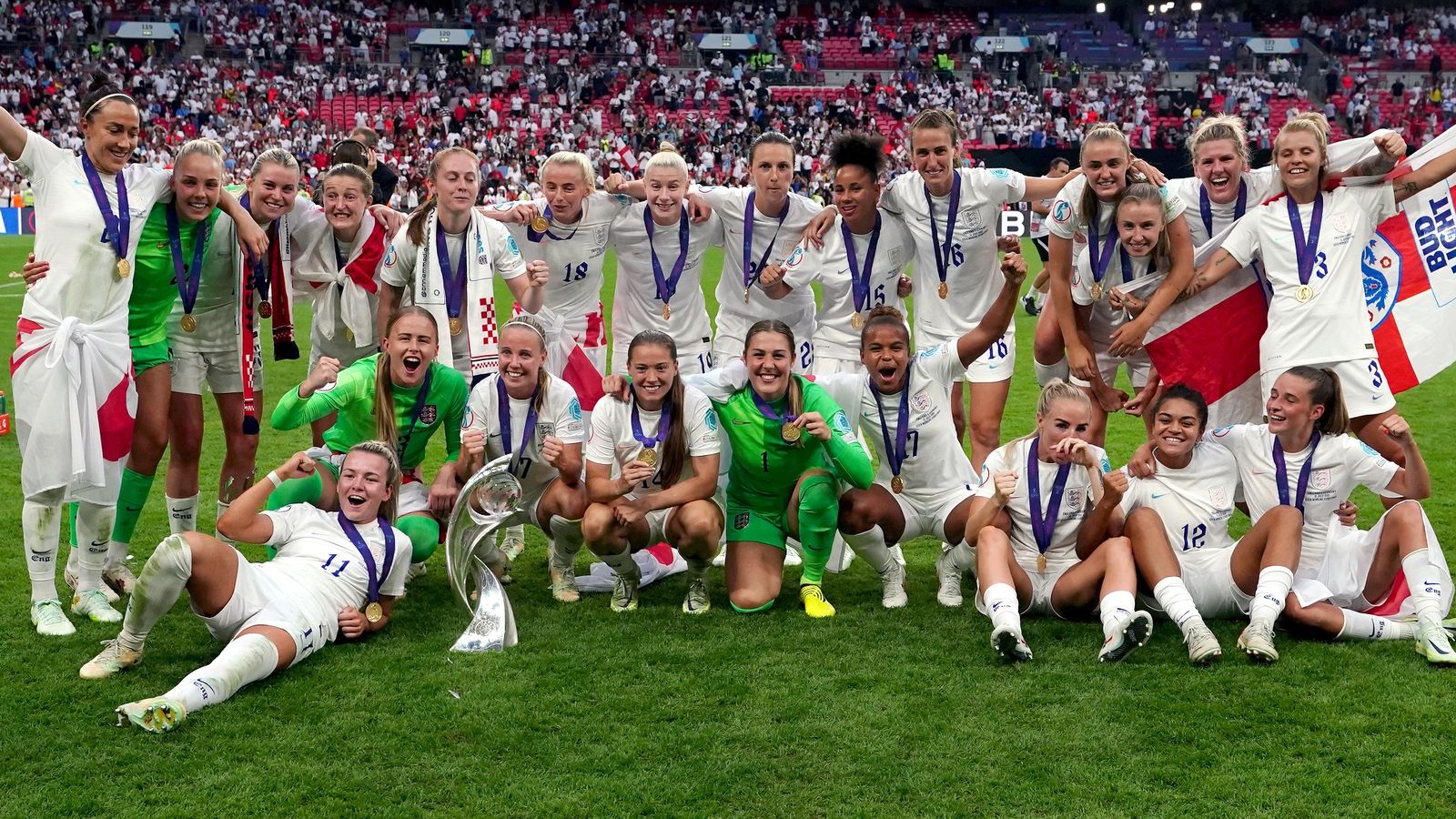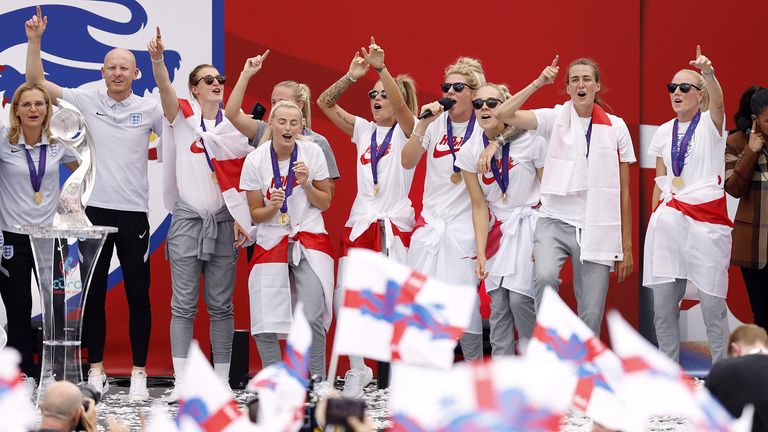The success of the Lionesses has coincided with record growth in women’s and girls’ football, according to a new report from the Football Association.
The governing body said the number of women and girls playing football has increased by 56 per cent since the ‘inspiring positive change’ programme was launched in 2020 – since when England have become European champions in 2022 before reaching the World Cup final a year later.
Seventy-seven per cent of schools now offer girls equal access to football, up by 14 per cent, which breaks down as 88 per cent of primary schools and 50 per cent of secondary schools.
Seventy-three ’emerging talent centres’ have been established to nurture young players in high-quality environments – with the talent base having grown by 265 per cent.
That has contributed to significant increases in the number of players from under-represented groups, up 127 per cent, and economically deprived areas, up 112 per cent.
The number of female coaches being developed has risen by 88 per cent to 470, and the number of female referees has increased by 113 per cent – with 14 referees now on the international list.
Women’s football has grown in several areas over the last few years. Attendances in the Women’s Super League are up by 239 per cent from 2021, while the Women’s FA Cup final has been a Wembley sell out in each of the past two seasons.
Knowing that for most girls their first taste of football comes in the playground or on the school playing fields, Inspiring Positive Change set the target of 75 per cent of schools to be offering girls equal access to football by 2024.
Campbell: There is still more work to be done
Baroness Sue Campbell, The FA’s Director of Women’s Football, said: “It is remarkable what has been achieved in just four years across all levels, with more women and girls stepping forward to play, coach, officiate and participate as fans.
“But there is still more work to be done for the sport to reach the heights we know it can grow to.
“It is our continued mission to increase diversity and make the women’s game an accurate representation of our society.
“We’re seeing an improvement, but we cannot rest on our laurels and we need to ensure every woman and girl, regardless of their background, can access football and enjoy the benefits it brings.
“There is every reason to be excited about where our game goes next, and I cannot wait to see where we will be in another four years’ time.”





